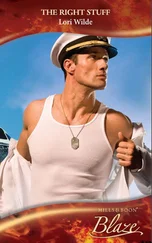Tom Wolfe - The Right Stuff
Здесь есть возможность читать онлайн «Tom Wolfe - The Right Stuff» весь текст электронной книги совершенно бесплатно (целиком полную версию без сокращений). В некоторых случаях можно слушать аудио, скачать через торрент в формате fb2 и присутствует краткое содержание. Жанр: Современная проза, на английском языке. Описание произведения, (предисловие) а так же отзывы посетителей доступны на портале библиотеки ЛибКат.
- Название:The Right Stuff
- Автор:
- Жанр:
- Год:неизвестен
- ISBN:нет данных
- Рейтинг книги:3 / 5. Голосов: 1
-
Избранное:Добавить в избранное
- Отзывы:
-
Ваша оценка:
- 60
- 1
- 2
- 3
- 4
- 5
The Right Stuff: краткое содержание, описание и аннотация
Предлагаем к чтению аннотацию, описание, краткое содержание или предисловие (зависит от того, что написал сам автор книги «The Right Stuff»). Если вы не нашли необходимую информацию о книге — напишите в комментариях, мы постараемся отыскать её.
The Right Stuff — читать онлайн бесплатно полную книгу (весь текст) целиком
Ниже представлен текст книги, разбитый по страницам. Система сохранения места последней прочитанной страницы, позволяет с удобством читать онлайн бесплатно книгу «The Right Stuff», без необходимости каждый раз заново искать на чём Вы остановились. Поставьте закладку, и сможете в любой момент перейти на страницу, на которой закончили чтение.
Интервал:
Закладка:
All these people with their smiles of sympathy didn't ask for much. A few words here and there would do fine. Do good work . Nevertheless, that didn't make these public appearances any better for Cooper. He was in the same boat with Gus and Deke, who was also no Franklin D. Roosevelt when it came to public appearances. Everybody latched on to you during these trips, congressmen and businessmen and directors and presidents of this and that. Every hotshot in town wanted to be next to the astronaut . For the first ten or fifteen minutes it was enough for them to breathe the same air you breathed and occupy the same space as your famous body. But then they began looking at you… and waiting… Waiting for what? Well, dummy!—waiting for you to say a few words! They wanted something hot! If you were one of the seven greatest pilots and seven bravest men in America, then obviously you must be fascinating to listen to. Riveting —that was what you were supposed to be. A few war stories, man! And you would sit there with the clutch in, furiously trying to think of something, anything, and it would make you gloomier and gloomier. Your light no longer shone round about you.
It was on such occasions that the three Air Force men, Cooper and Gus and Deke, wouldn't have minded being like Alan Shepard. Shepard was all right. He didn't go for these public appearance stints any more than they did. But Al could shift gears anytime he had to. Al was a Naval Academy man, and if he had to glad-hand and shoot the breeze and trade the small talk with all these congressmen and realty board chairmen and rye distillers and get up and make extemporaneous remarks when called upon, then he could do it. Wally Schirra was another Naval Academy man, and he could play it any way he wanted to, also. Wally was a regular guy, a fighter jock through and through, but he also had the knack of turning on the old Academy charm around strangers. As for the other Navy guy, Carpenter, he wasn't an Academy man, but he was Mr. Charm himself, all the same. He knew how to turn on the party manners.
There was damned little social crap in the Air Force, and that was probably one reason why Cooper liked the blue suit. The "officers and gentlemen" business was kept at a minimum. At most bases the only well-to-do locals who invited Air Force officers to parties were the automobile dealers. They just loved the way those crazy blue-suit sombitches bought those cars and racked them up and then came back and bought some more. In the Air Force there was a nice piece of built-in democracy. Until an officer had reached the level of lieutenant colonel, there was only one way for him to make his mark and advance, and that was by proving himself as a pilot. If he could demonstrate that he had the right stuff in the air, there was nothing, short of gross character defects, that could keep him from rising through the middle ranks. In the Navy Air Force an officer also had to prove himself in the air, but at the test-pilot level the Navy began to insist on "leadership qualities" as well, meaning polish and the rest of it.
There you had a man like Al Shepard, who had come from out of what was sometimes called "the service aristocracy." Which was to say, Al was the son of a career officer. By now you ran into these fellows, the second-generation officers, all over the service. They seemed to make up half the graduates of West Point or Annapolis, like Al and Wally Schirra. Al's father was a retired Army colonel. Wally Schirra's was in effect a service family. His father had been a pilot in the First World War, had then left the service, but then became a civil engineer for the Air Force after the Second World War, helping to rebuild Japanese airfields. You very seldom ran into career officers who were the sons of businessmen, doctors, or lawyers. They steered their sons away from the service. They looked down on it. So what you found were the second-generation officers on the one hand, like Shepard and Schirra, and the sons of workingmen and farmers on the other, fellows like Gus and Deke and John Glenn. Fellows like Shepard and Schirra (and Carpenter) might come from small towns, strictly speaking, but it was a mistake to call them "small-town boys," the way you could apply that term to Gus or Deke, and it showed in the way they could handle themselves in public.
It wasn't long before Cooper began to miss flying, the stick 'n' rudder life, in the worst kind of way. He began to miss it the way another man might have missed food. The daily business of taking a high-performance aircraft aloft and hanging it out over the edge—this was at the heart of the fighter jock's life, even though its importance was never expressed except in the term "proficiency." Pilots devoutly believed that it was necessary to fly out to the edge with regularity in order to maintain proficiency or "decision-making ability." On one level it was a logical enough equivalent to an athlete's concern with staying in shape; but on another it had to do with the mysteries of the right stuff and the ineffable joys of showing the world, and yourself, that you had it. It was damned strange to be in flight training, as America's first astronauts, and yet to be doing no flying themselves, except as passengers.
There was no flying whatsoever on their training agenda! As the weeks went by, all seven men began to be bothered by this, but it was Cooper who voiced the complaint publicly. The early months included a heavy schedule of lectures, on astronomy, rocket propulsion, flight operations, capsule systems, and the trips to the contractors, and to the subcontractors, and to Cape Canaveral, where the rockets would be launched, to Huntsville, Alabama, where Wernher von Braun and his Germans were developing booster rockets, to Johnsville, Pennsylvania, where the human centrifuge was located. There was no end to it. On all these trips Cooper, like the others, had to travel by commercial airline. It seemed as if he spent half of every day standing around airports waiting for luggage or going through his pockets to see how much money he had. Here he was, flying half the month—as a passenger! On top of everything else, he was losing flight pay! It was no laughing matter! DeOrsey was negotiating the Life deal but had not yet closed it. If an Air Force captain kept up his proficiency flying, he stood to receive an extra $145 a month in flight pay, and there was not a sane blue-suiter alive who did not go out and get that flight pay each month unless bedridden or grounded. The extras—my God, it was impossible to explain to an outsider, but these things were built into the psyche of the career officer like first principles! Besides, your family always needed the money. Cooper, like the other six, was being paid by the military, and so he was losing a significant percentage of his income, which hadn't been much to begin with. Not only that, an officer in the military received a mere nine dollars a day in expenses for day trips and twelve dollars a day for overnight trips. To stay in hotels, to eat in restaurants—it was a losing proposition. Especially when they were supposed to be some sort of celebrities. They all felt like the biggest deadbeat celebrities in America. Say you were having lunch with five or six hotshots in Akron, where you went for pressure-suit fittings at B. F. Goodrich. You didn't dare reach for the check. Suppose through delayed psychomotor response or some other dreadful accident they let you have it! The damned thing might be for thirty-five dollars—and there went your family's food money for two weeks… And yet the flight pay itself was the least of it. It was more evidence of the curious non-pilot status of the astronaut. Cooper figured he was spending forty hours a month on commercial airliners in order to go through all this. What he wouldn't have given to have access to a supersonic fighter plane like the F-104B… Gus and Deke were managing to cadge rides on the weekends in T-33's at Langley. But the T-33 was pretty tame stuff, a subsonic trainer. The F-104B was something you could cut loose with. Langley Air Force Base wasn't even equipped to maintain such an aircraft, however. So Cooper was going all the way to McGhee-Tyson in Knoxville, where he had a buddy who could get him signed up for the occasional workout in the F-104B. With a ship like that he could live and breathe … and maintain proficiency and keep in touch with that righteous stuff…
Читать дальшеИнтервал:
Закладка:
Похожие книги на «The Right Stuff»
Представляем Вашему вниманию похожие книги на «The Right Stuff» списком для выбора. Мы отобрали схожую по названию и смыслу литературу в надежде предоставить читателям больше вариантов отыскать новые, интересные, ещё непрочитанные произведения.
Обсуждение, отзывы о книге «The Right Stuff» и просто собственные мнения читателей. Оставьте ваши комментарии, напишите, что Вы думаете о произведении, его смысле или главных героях. Укажите что конкретно понравилось, а что нет, и почему Вы так считаете.











